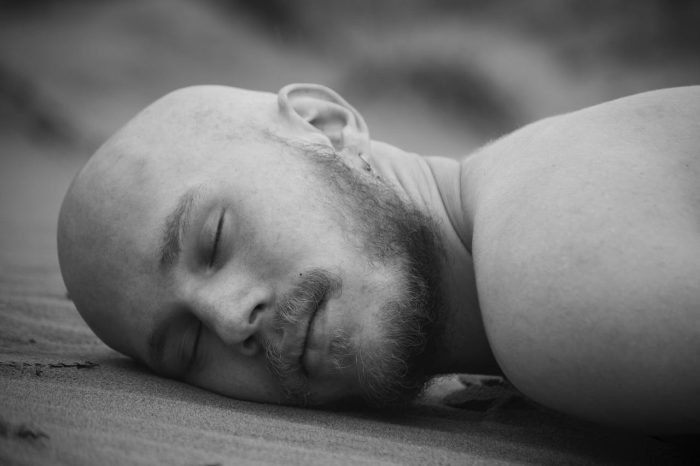Monday through Friday, I spend time working with clients in order to help them improve their physical health, mental health, and addiction.
In my mind, these are not three different areas; these are all health. Sadly, I recognize that a few hours a week does not go very far. The way our health system works currently, they tend to divide these three as if they are separate. This is driven largely because they can choose what to fund and what not to fund by compartmentalizing or separating these.
I’m not one to usually quote scripture, but it does, in fact, say, “The love of money is the root of all evil.” The world we live in has people who, no matter how much money they have, they will always want more. While I would love to blame this as the reason this problem keeps getting worse, it is, in fact, only a small part of the more significant problem.
I remember years ago when I was a case manager and my job was to help connect people to resources, and the lack of resources was the problem. It was, in fact, the reason I wanted to get an MSW and go into advocacy. Advocacy is still essential and can go a long way in making changes by there being more resources available for people. As an example, getting people into safe and stable housing is a great way to help them have more security and safety, which means they can begin to work on other things, as every day is not just about surviving. This, once again, is also a great way to save money, which is why it’s surprising that Housing First is not our go-to program. The cost per homeless person in the economy currently sits between $30,000 and to 50,000 a year on average. Getting permanent housing for each person saves an average of about $20,000. While this has an impact on health, it still is not what is going to work to solve our problem.
People have this idea that treatment will be the big solution to our problems with the declining areas of health and rise in addiction. Currently, most clinics have a struggle to get providers in the office. There are fewer people who are going into the medical, mental health, and addiction fields. This is created by high stress and an almost revolving door approach. The average doctor’s visit is seven minutes. Most people don’t address all that they need to in seven minutes. Some providers essentially are just warm bodies at this rate. Many clinics have a minimum of a six-month waitlist before a person can even be seen for an intake.
When my mental health deteriorated, I was fortunate enough to be in a school that offered free resources. My provider was only allowed to see me twice a month, but he knew I needed to be seen once a week at that time. Sadly, many people who absolutely need it don’t get it. When it comes to addiction, it is also an absolute shit show as many people are dying every day, and they generally only get treatment after years of being in and out of prison. Treatment is the number one way to reduce recidivism. Recidivism is the rate at which people return to jail after already serving. What a wonderful thing it would be if this kept people from going there in the first place. They are working on doing it, but we have millions, which is too late.
The lack of treating and addressing these areas is only making it more likely to keep happening. It also means it is expected to continue increasing, and it has been exponentially. These areas are vital to manage on a social and political level. Sadly, both sides of our system are too busy, causing us to separate from each other and not do anything to change these things. In my opinion, as someone who cares deeply about advocacy, I don’t really feel that there is much they will do, and if they did it, that would not eliminate it either. So, what is the answer?
Right now, the only answer I can give is me. The truth is it could also be you—all of you. There is a quote that is credited to many people that I might have heard somewhere, but I know have said for a long time. That is, “Be the change you want to see in the world.” I encourage any person who reads this to ponder this and realize what does this quote mean to you? If you want to see that person you love overcome the difficulties they face in their overall health (physical, mental, addiction), then what are you going to change or be to help them or even yourself in dealing with that? You certainly can have an impact even if it is their choice and something they must do. You never cause things to happen, but you sure the f*ck can influence them.
There is nothing that can come from any article, book, class, or piece of advice that can tell you what you need to do in order to help the people around you, but I can share with you some ideas that you can figure out how to apply in the choices and changes you can make to help the people you love. The answer to this problem really does come down to us. The first thing is always practicing compassion.
Compassion is the idea of shared struggle. It is actually what connects us as humans. We get this idea that our accomplishments connect us. If that were true, then we would tend to share the same achievements in life. Many people don’t drop out of high school to get a master’s degree like me. In fact, I have only met a single person who has in my life. I have, however, met many people who struggled in high school at some point. In fact, it’s safe to say if you graduated or not, you did have a struggle then. Even beyond that every person has experienced struggle of some type in their life, which is what makes us human more than anything we have done with ourselves. We have all struggled, and many of us alive are struggling now. Being kind and understanding of this is highly valuable.
A big piece of compassion is empathy. Many people think empathy and compassion might be the same. The truth is empathy is our greatest tool of compassion. Many people believe empathy is based on experience, which is just not true. This is when people think a person can’t know anything about addiction if they have never been addicted. What lies in addiction? Shame, guilt, humiliation, embarrassment, helplessness, hopelessness, loneliness, sadness, and so on. Are these emotions exclusive to addiction? They most certainly are not. They are things that just about everyone alive has felt in some way. This means empathy is not about shared experience but shared emotion. This is why Brené Brown teaches we have to know our own darkness to sit in the darkness with others.
Finally, we accept others for who they are, not who we want them to be. As a friend, family member, counselor, social worker, and many others, I have learned to accept people as they are. This is extremely hard in a world where so much judgment and hate are spewed out almost constantly. This does not mean we approve, support, encourage, agree with, or any of that around what people may be doing. It does mean that we show them love, kindness, understanding, and empathy at all costs. If we learn to practice this despite the challenges someone faces, the connection they have will go a long way in supporting them in overcoming the challenges they face.
A lot can be done to help the people we love in all areas of their lives that happen to us. This does not mean fighting for a better world is fruitless, but if we can’t change that, let’s take some time to change ourselves. We need kindness, compassion, connection, understanding, and love as much as we need to practice these things to help address the increasing difficulties around health, mental health, and addiction.
~
Please consider Boosting our authors’ articles in their first week to help them win Elephant’s Ecosystem so they can get paid and write more.












Read 2 comments and reply